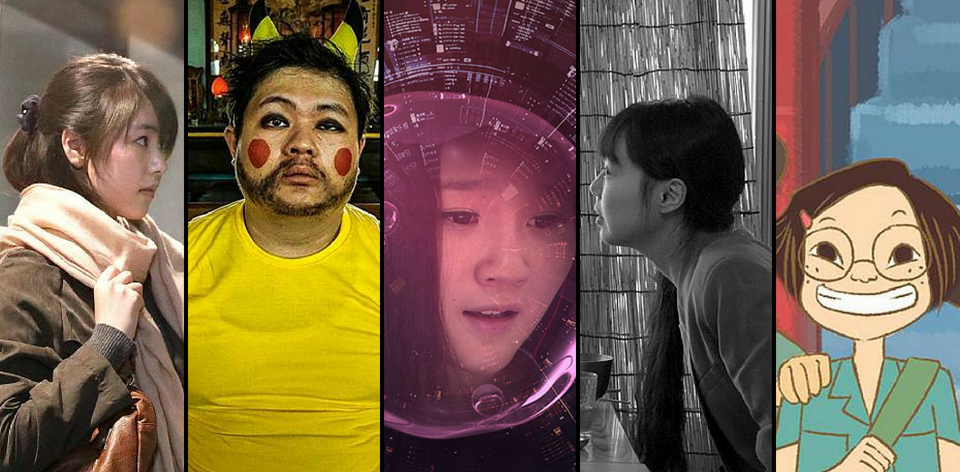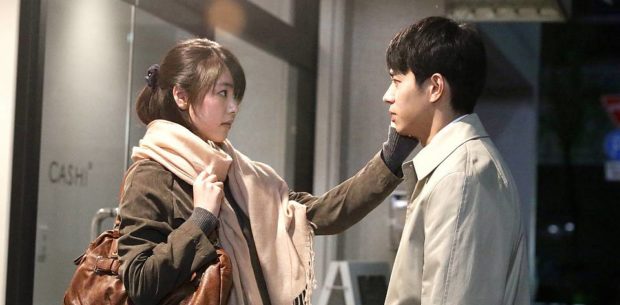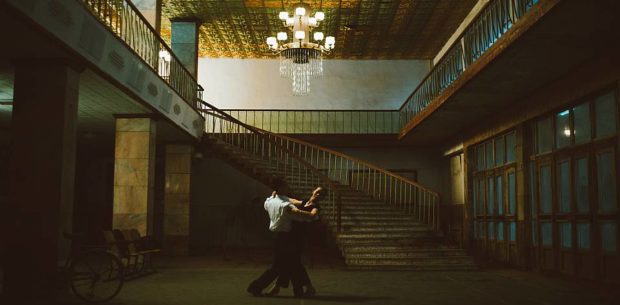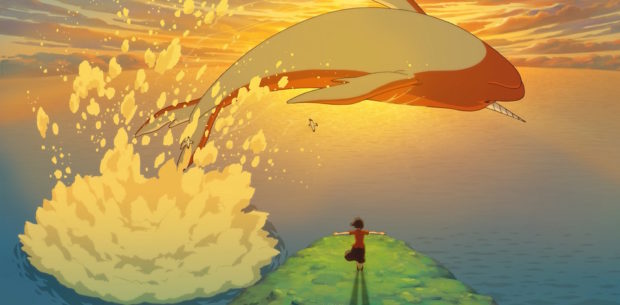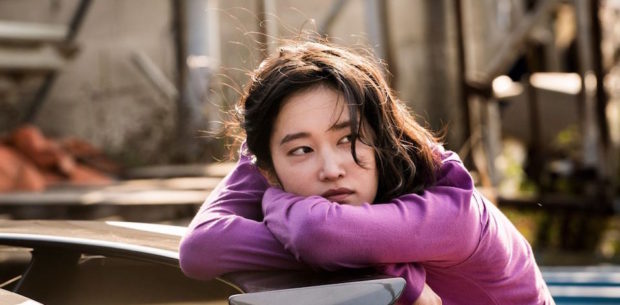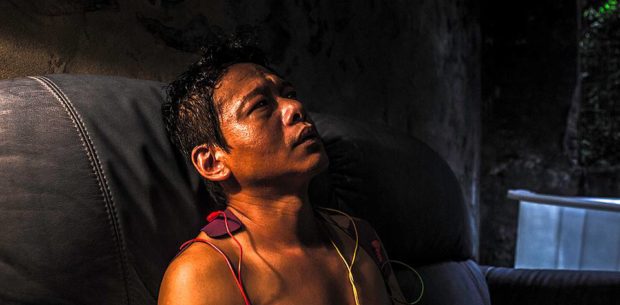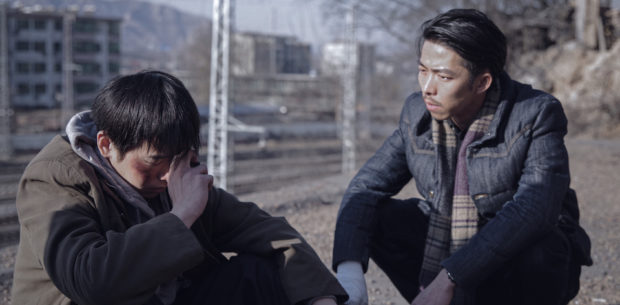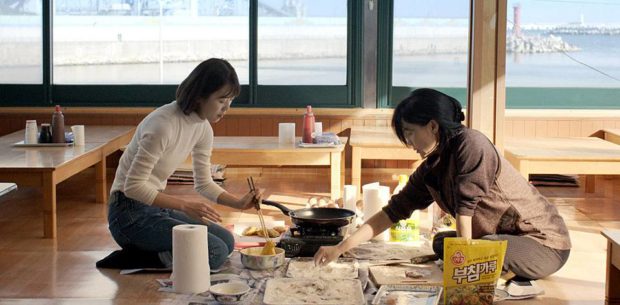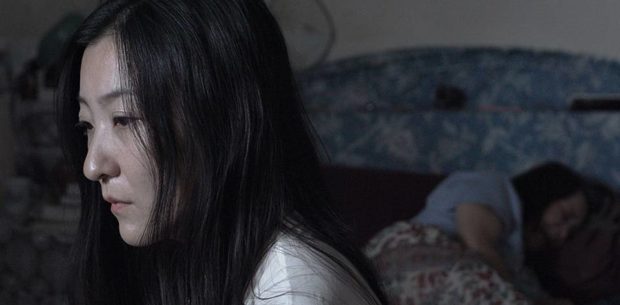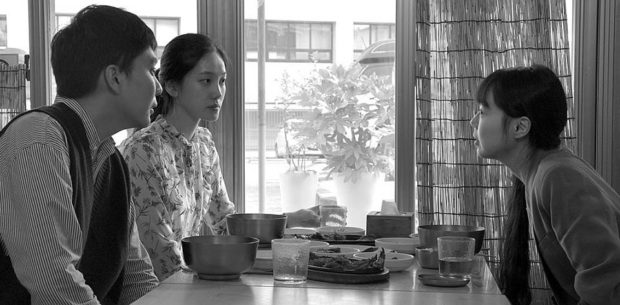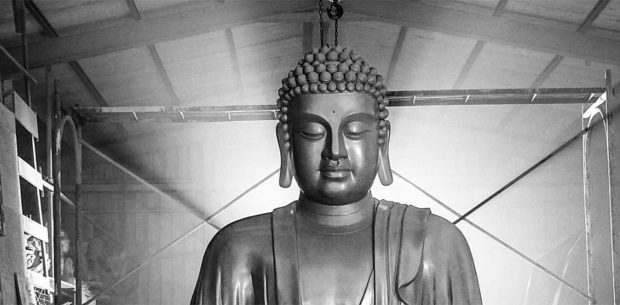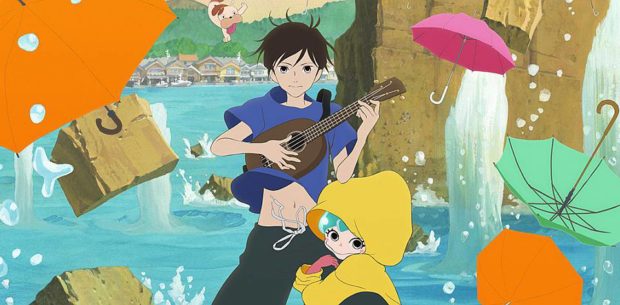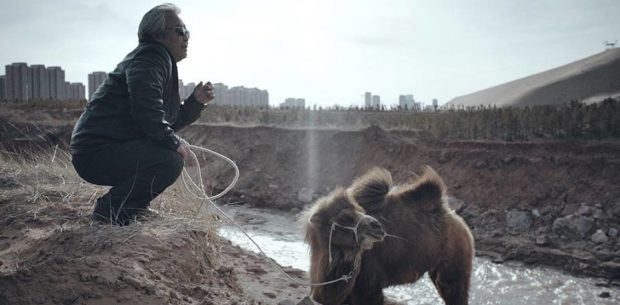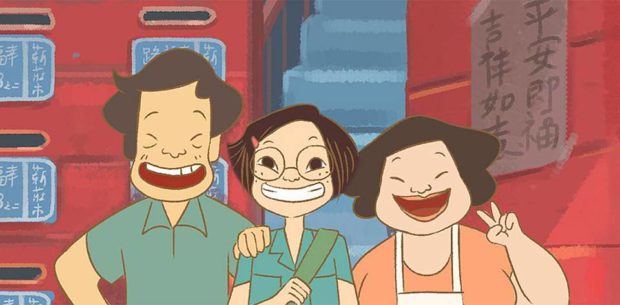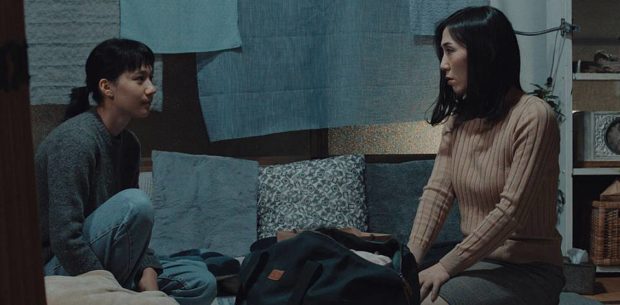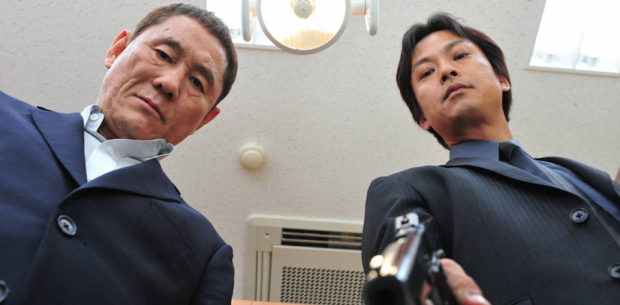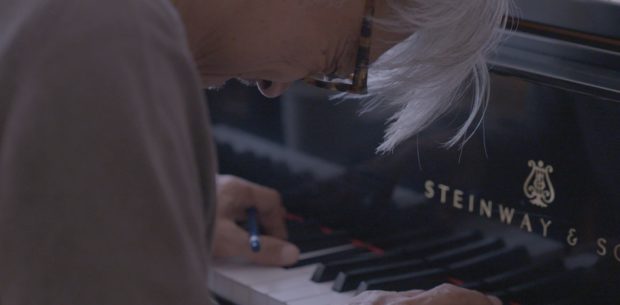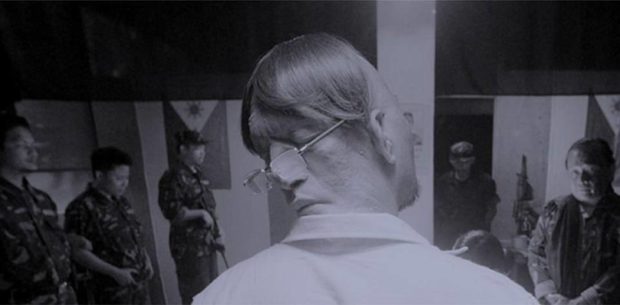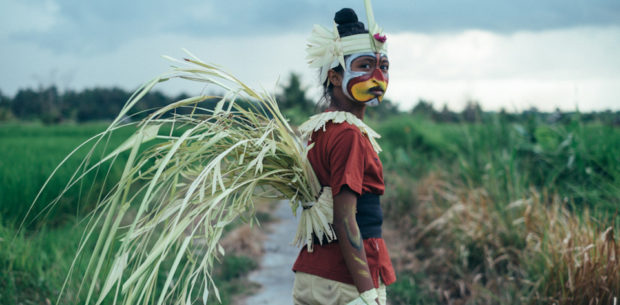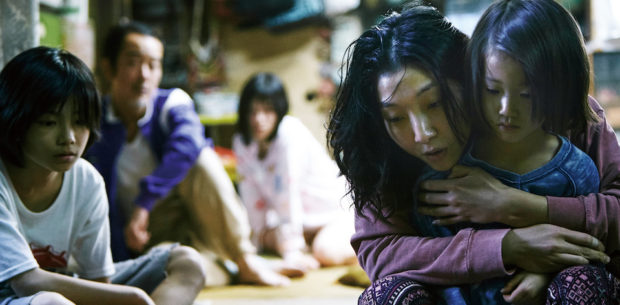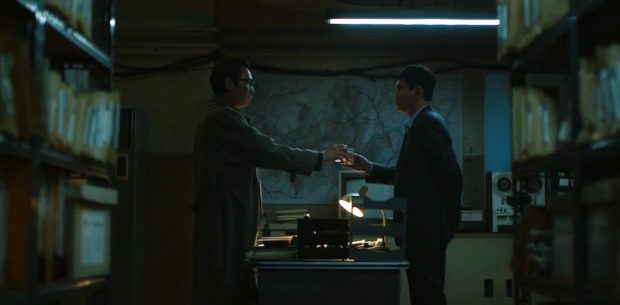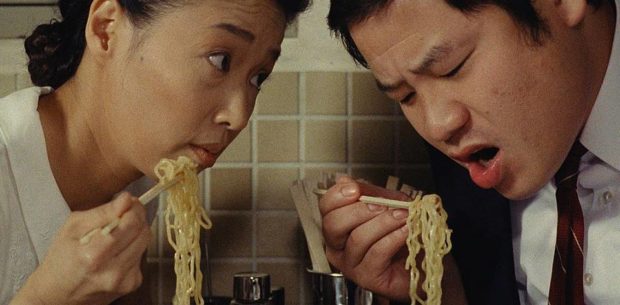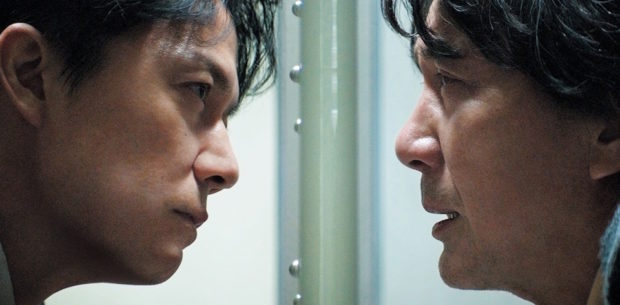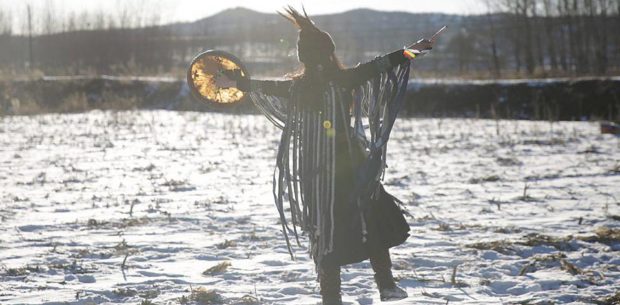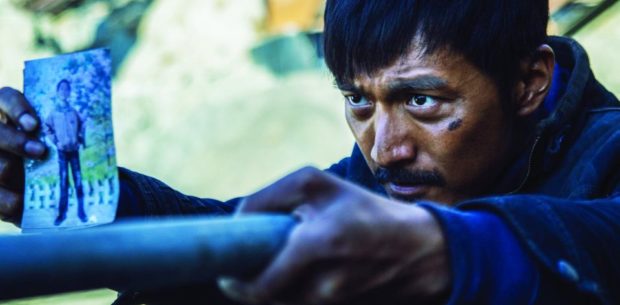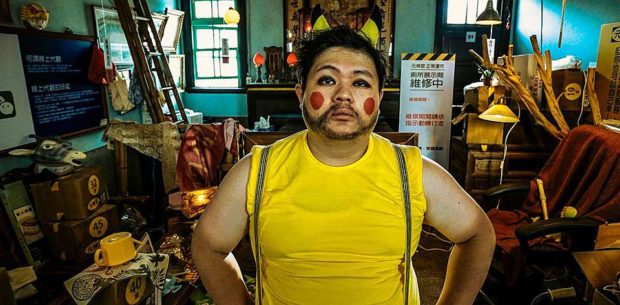Has it really been a year since the last Melbourne International Film Festival? Time flies when you’re watching hundreds of films. Running from 2 – 19 August, MIFF’s programming is as impeccable as always.
While MIFF doesn’t have a specific focus on Asia as they have in years gone by, The Reel Bits has long put Asia in Focus. So we thought we’d take a closer look at the Asian cinema screening this winter in Melbourne. Almost 30 films represent here come from South Korea, Japan, Taiwan, China, Philippines, and Indonesia, making it one of the largest festivals to feature multi-country Asian content in Australia. We will, of course, be covered the rest of the program in more detail over the next month or so.
You can check out the rest of the titles and buy tickets (and maybe a pass or two) from the miff.com.au website. You can follow all of our coverage through our MIFF 2018 portal.
Angels Wear White
(China, Dir: Vivian Qu)
Vivian Qu (Black Coal, Thin Ice) continues to interrogate crime, corruption and control in modern-day China, which won her the Best Director award at the Golden Horse Film Festival. It follows two women who face moral dilemmas after a shocking assault on the tourist-friendly Hainan Island. This might just be a must-see.
Asako I & II
(Japan, Dir: Ryusuke Hamaguchi)
Ryusuke Hamaguchi’s Happy Hour was one of our favourite films last year, despite (or perhaps because) of the fact that the 5-hour film took a leisurely stroll through the lives of a group of women. Based on the novel by Tomoka Shibasaki, it follows Asako (Erika Karata) a young women in Osaka who falls in love with free-spirit Baku (Masahiro Higashide). Baku disappears, and 2 years later she meets Ryohei (Masahiro Higashide), who is physically similar but very different to her ex-boyfriend. This is one we are very excited by, even if it’s another 5 hours from the filmmaker.
Ash Is Purest White
(China, Dir: Jia Zhang-Ke)
Jia Zhang-Ke’s sixth screening at Cannes, the one-time underground filmmaker has continued to rise to prominence in his native China and around the world. Starring Starring Zhao Tao and Liao Fan, the epic film with span almost two-decades in Datong, where a young dancer is caught up in a rivalry between gangs and takes a fall for love.
Big Fish & Begonia
(China, Dir: Xuan Liang Chun Zhang)
Chinese folklore meets lovingly crafted animation as Chun is sent to explore the human world in the form of a dolphin. However, when a human boy rescues her at the cost of his own life, she makes a bargain to restore his life at the cost of some of her own. From that point, she must protect his soul as it grows from a tiny fish named Kun into a much bigger one fed on complex emotions. READ FULL REVIEW >>>
Burning
(South Korea, Dir: Lee Chang-Dong)
An adaptation of the short story “Barn Burning” written by Haruki Murakami. Stars Jong-Soo (Yoo Ah-In), Ben and Hae-Mi (Jeon Song-Seo) and Steven Yeun (The Walking Dead, Okja). Director Lee Chang-Dong is best known for his films Secret Sunshine (2007) and Poetry (2010), which won the best screenplay award at Cannes. READ FULL REVIEW >>>
The Deserted
(Taiwan, Tsai Ming-liang)
Director Tsai Ming-liang is known for his work in the field of ‘slow cinema,’ and is perhaps best known internationally for What Time Is It There? and Stray Dogs. This is his first foray into the world of VR, in a 55 minute, where he uses his penchant for long takes to fully immerse the viewer into this environment.
An Elephant Sitting Still
It will always be difficult to separate AN ELEPHANT SITTING STILL from the tragedy surrounding it. Following the production of this four-hour musing on a self-centred society, filmmaker Hu Bo took his own life at the age of 29. A heavy theme gets an equally weighty length in this four-hour film about individuals prioritising their own gains in a interconnected society. READ FULL REVIEW >>>
The First Lap
(South Korea, Kim Dae-hwan)
Director Kim Dae-hwan won the Best Emerging Director prize at Locarno for this intense examination of a relationship. A couple have been together six years, and the first cracks in their perfect facade are starting to show.
Girls Always Happy
(China, Yang Mingming)
In what could possibly be an ironic title, Yang Mingming writes, directs, edits and performs as one half of a mother/daughter relationship (opposite Nai An) as they navigate the cramped conditions of the city’s neighbourhoods, constant bickering, and a bond built on similarities rather than differences.
Grass
(South Korea, Hong Sang-soo)
Sang-soo and his current muse Kim Min-hee team up again with what sounds like his most charming film since…well, the three he did last year. Kim plays Areum, who creates transcripts from the conversations she hears around her. However, it might just be that they are elaborate fictions she has exaggerated in her own mind.
The Great Buddha+
The set-up for this should be enough to encourage viewership: “Two middle-aged losers stumble upon a crime.” It’s also the first feature narrative from Taiwanese documentarian Huang Hsin-yao, who expands his 2014 short film here. Leads Bamboo Chen and Cres Chuang have been described as a “scuzzy yet endearing duo. It screened at the Sydney Film Festival this year to great audience acclaim.
Lu Over the Wall
(Japan, Masaaki Yuasa)
This Japanese animation, from noted anime director Masaaki Yuasa (Mind Game and the upcoming Devilman Crybaby), was a top award winner at the 2017 Annecy Animation Festival. It follows the age old story of joining a high-school band, only to discover your music has caused a riff between the townsfolk and the mermaid populace. The hybrid animation blends hand-drawn techniques with Adobe Flash for in-between frames.
Mirai
(Japan, Dir: Mamoru Hosoda)
Animation powerhouse Mamoru Hosoda’s film is already one of our most favourite animated films of the year.Another magical, moving, Mamoru Hosoda masterwork is arguably his most intimate, but no less fantastical in its scope or magical realism. In some ways it’s his most straightforward piece, but perhaps also one of his most personal. READ FULL REVIEW >>>
Nervous Translation
(Philippines, Dir: Shireen Seno)
Filipino visual artist and director Shireen Seno examines 1987, a period of political turmoil in the Philippines, through the eyes of a child. The magic realism of this will make for an interesting companion piece to both Lav Diaz’s Season of the Devil (see below) and Indonesia’s childhood fantasy The Seen and Unseen (also below).
Old Beast
(China, Zhou Ziyang)
Prepare to meet a unique character here. MIFF sold us with the opening line to their description, calling it a film about “an out-of-control patriarch in a Chinese ghost town.” There’s also a camel. A triple award winner at Taiwan’s Golden Horse Film Festival, debut diretcor Zhou Ziyang continues a theme of Chinese films exploring opportunism and individualistic motivations in contemporary China.
On Happiness Road
(Taiwan, Hsin-Yin Sung)
Following a successful international festival run, including this year’s NYAFF, Hsin-Yin Sung’s tale of family life in Taiwan has been compared to the late, great Isao Takahata’s Only Yesterday. Winner of the Tokyo Anime Festival’s Grand Prize, it’s a showcase for Taiwan’s relatively small animation industry.
Our House
(Japan, Dir: Yui Kiyohara)
Winning the grand prize at Japan’s Pia Film Festival, writer/director Yui Kiyohara makes her feature debut after studying under Kiyoshi Kurosawa (Journey to the Shore). Described as an eerie almost ghost story of sorts, MIFF says there’s influences from Jacques Rivette and David Lynch. We’re in.
Outrage Coda
(Japan, Takeshi Kitano)
“That old fashioned gangster definitely served us well,” remarks one character during the climax of the film. For the character of Otomo and director/actor ‘Beat’ Takeshi Kitano alike, truer words were never spoken. It’s the last stand of the old school as a legend brings a bloody, downbeat and completely fitting conclusion to his yakuza saga. READ FULL REVIEW >>>
People’s Republic of Desire
(China, Hao Wu)
A documentary from Hao Wu won SXSW’s Grand Jury Prize for Documentary, it explores China’s popular live-streaming culture through two seemingly ordinary people who have earned celebrity status across a wide cultural divide in China. Definitely zeitgeisty.
Ryuichi Sakamoto: Coda
(US/Japan, Dir: Stephen Nomura Schible)
You know his work. He began his career, as a composer and actor, in Nagisa Oshima’s Merry Christmas Mr. Lawrence, which should have been the first sign of great things to come. Let’s do some of the list: The Last Emperor, Royal Space Force: The Wings of Honnêamise, The Little Buddha, The Revenant, and of course, Brian De Palma’s Snake Eyes. Director Stephen Nomura Schible shot this over 5 years, and process junkies, cinema lovers, and music aficionados should dig this. So you know, people who are reading this article. READ FULL REVIEW >>>
Season of the Devil
(Philippines, Dir: Lav Diaz)
An all-singing love-story-rock-opera set during the Marcos dictatorship? Count us in! It follows poet and activist, Hugo Haniway, who sets off to find his wife, who has disappeared after setting up a village clinic. While it is about half the length of Diaz’s marathon 8-hour A Lullaby to the Sorrowful Mystery, the Filipino director’s latest film still clocks in at an impressive 234 minutes. So plan your bathroom breaks accordingly.
The Seen and Unseen
(Indonesia, The Netherlands, Australia, Qatar, Dir: Kamila Andini)
In rural Bali 10 year-old Tantri is slowly losing her twin brother Tantra to a brain tumour. However, a magical occurance in her village results in her being able to sing and dance with her brother again, with a surreal mixture of shadowplay and cinema magic from a bygone era. One of those rare movies that mesmerises you with its mixture of unique storytelling and visual brilliance. It should be seen. READ FULL REVIEW>>>
Shoplifters
(Japan, Dir: Hirokazu Kore-eda)
Funny, heartbreaking, and socially aware, Hirokazu Kore-eda once again shows his mastery of demonstrating the subtle way in which humans do human things. Kore-eda has assembled one of his strongest casts to date, with family and new faces alike pulling in award-worthy performances. Put simply, this is another masterpiece from the king of intimate family dramas. Read full Review >>>
The Spy Gone North
(South Korea, Dir: Yoon Jong-Bing)
In this time of tense relations with North Korea, this film is based on the true story of…well, you get the idea. Set just prior to the 1997 elections for the South Korean President, the film previously known as Operation stars Hwang Jung-Min, Lee Sung-Min, Cho Jin-Woong, and Ju Ji-Hoon. If you miss it at MIFF, it makes its way to selected Australian cinemas on 23 August 2018 anyways!
Tampopo
(Japan, Dir: Juzo Itami)
Largely recognised as one of the most popular Japanese films of the 20th century, it will certainly leave you craving a bowl of ramen. This 1985 classic piece of Japanese cinema plays in revival with a new 4K restoration at the Astor. It’s a kind of Western in which a roving band of ronin are on a quest to find the perfect ramen. There’ll even be a one-of-a-kind vegetarian ramen for guests. Our mouths are watering already.
The Third Murder
(Japan, Hirokazu Kore-eda)
Hirokazu Kore-eda opens his twelfth narrative feature, with a murder and a body being burned. The darkly moody and stylised opening is a stark contrast not only with the intimate family portraits of the last few decades, but also with the precise confines of the legal thriller that follows. READ FULL REVIEW >>>
The Widowed Witch
(China, Cai Chengjie)
Another debut from a Chinese director. Cai Chengjie, who won the Tiger Award at Rotterdam, brings a strong feminist tale about a “thrice widowed woman” who poses as a shaman to enact revenge.
Wrath of Silence
(China, Dir: Xin Yukun)
A familiar tale of revenge gets a unique spin in what amounts to a Western by way of Chinatown. So…Rango? Or Kurosawa. Handsomely shot with a powerfully moody score. Director Xin Yukun, whose last feature (2014’s The Coffin in the Mountain) won Best Revelation at the Venice Film Festival, Best Directorial Debut at the China Film Director’s Guild Awards, and many more. READ FULL REVIEW >>>
Your Spiritual Temple Sucks
(Taiwan, John Hsu)
This might be the best title of a film at this year’s MIFF at the very least, this action comedy won Best Innovative Storytelling Award at Switzerland’s World VR Forum. This is another VR film that plays as part of Virtual Reality Package 5 on various days throughout the fest.

